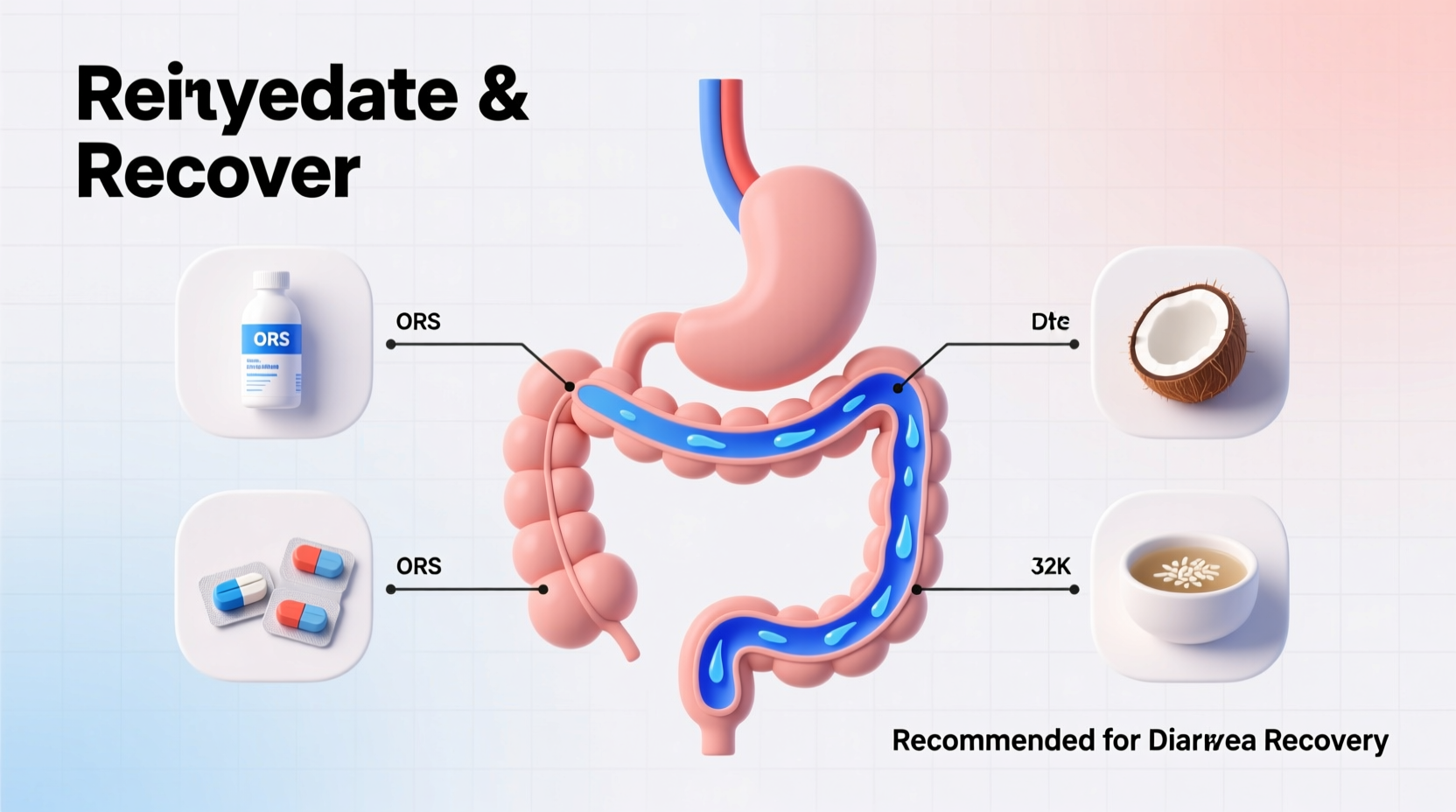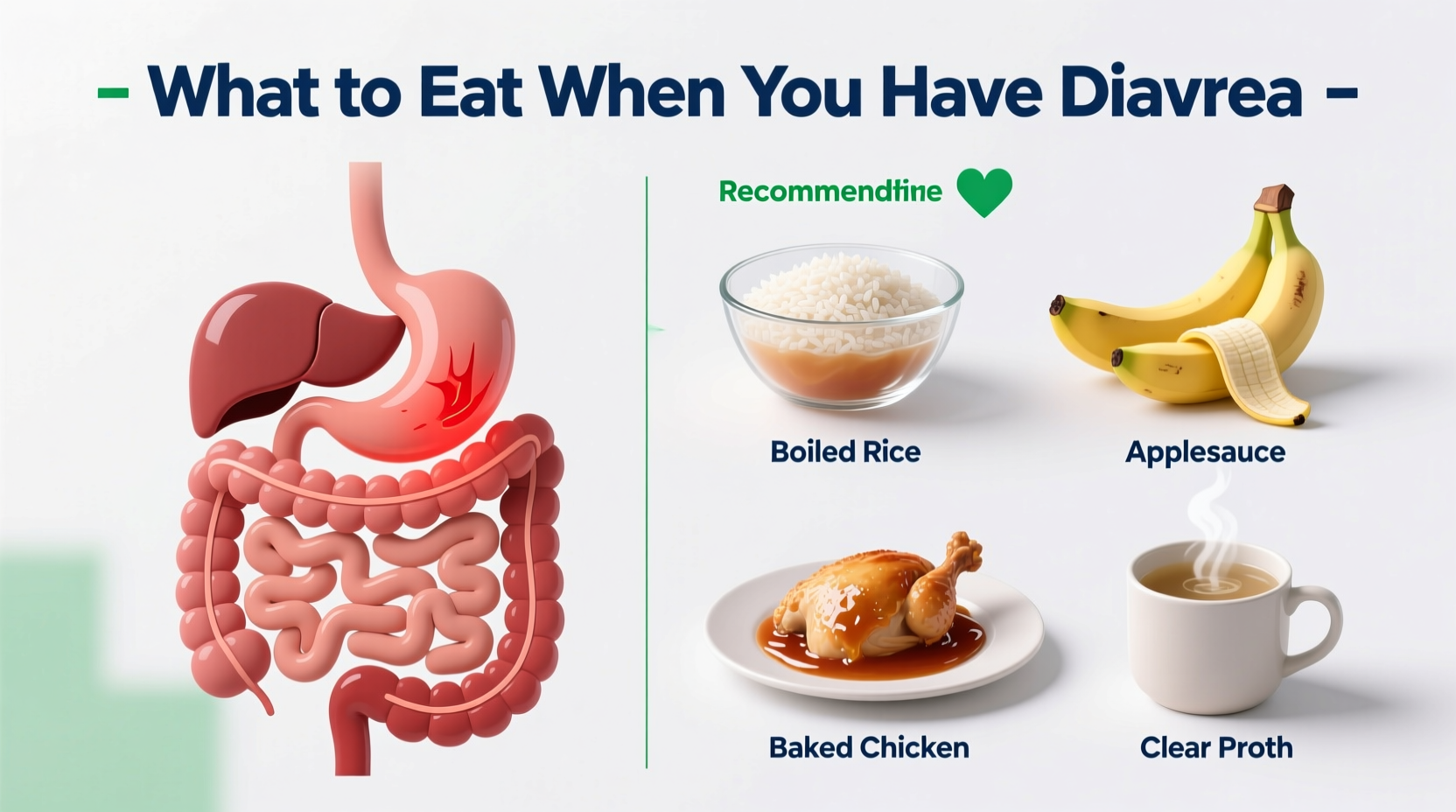Your Immediate Action Plan for Diarrhea Relief
Diarrhea affects millions globally each year, causing discomfort and potential dehydration. The right food choices can reduce symptom duration by 30-50% according to CDC guidelines. This evidence-based guide provides medically-reviewed dietary recommendations to help you recover safely and effectively.
First 4-6 Hours: Prioritize Hydration Above All
During the initial phase of diarrhea, your primary focus must be preventing dehydration. Your body loses critical fluids and electrolytes that need immediate replacement:
- Oral rehydration solutions (ORS) are medically proven most effective - mix 6 level teaspoons sugar and 1/2 level teaspoon salt in 1 quart (liter) of clean water
- Sip small amounts frequently (2-3 tablespoons every 5-10 minutes) rather than drinking large quantities at once
- Avoid plain water alone, which doesn't replace lost electrolytes
- Clear broths provide sodium and some nutrients without irritating your digestive system
According to the World Health Organization, proper hydration reduces hospitalization risk by 65% in acute diarrhea cases.

Modern Diarrhea Diet: Beyond the BRAT Approach
While the traditional BRAT diet (bananas, rice, applesauce, toast) remains helpful, current medical understanding has evolved. The Mayo Clinic now recommends a more nutritionally complete approach that includes additional protein sources to support faster recovery.
| Recovery Stage | Recommended Foods | Foods to Avoid |
|---|---|---|
| Acute Phase (0-24 hrs) | ORS, clear broths, weak tea, bananas | All dairy, fatty foods, high-fiber foods, caffeine, alcohol |
| Early Recovery (24-48 hrs) | White rice, boiled potatoes, applesauce, plain toast, oatmeal | Raw vegetables, spicy foods, citrus fruits, artificial sweeteners |
| Continued Recovery (48-72+ hrs) | Cooked carrots, boiled chicken, scrambled eggs, yogurt with live cultures | Whole grains, nuts, seeds, fried foods |
Why Certain Foods Help (and Others Worsen) Diarrhea
Understanding the science behind food choices helps you make better decisions when managing diarrhea:
Foods That Support Recovery
- Bananas contain pectin, which helps firm stools and provides potassium lost during diarrhea
- White rice is low in fiber and easy to digest, helping bind stools
- Applesauce provides soluble fiber without the irritating skin found in raw apples
- Boiled potatoes (without skin) offer easily digestible carbohydrates and potassium
- Probiotic yogurt (once symptoms improve) introduces beneficial bacteria to restore gut balance
Foods That Worsen Diarrhea
- Dairy products (except probiotic yogurt later in recovery) - lactose intolerance often increases temporarily during diarrhea
- Fatty or fried foods - difficult to digest and stimulate bowel activity
- High-fiber foods (raw fruits/vegetables, whole grains) - increase bowel movement frequency
- Caffeine and alcohol - act as diuretics, worsening dehydration
- Artificial sweeteners (sorbitol, mannitol) - have natural laxative effects
Diarrhea Recovery Timeline and Dietary Progression
Your recovery follows a predictable pattern when following proper dietary guidelines. Understanding this timeline helps set realistic expectations:
- Hours 0-12: Focus exclusively on hydration with ORS solutions. Sip small amounts frequently. Avoid solid foods if nausea is present.
- Hours 12-24: If vomiting has stopped, introduce very bland foods like bananas and white rice in small portions (1/4 cup servings).
- Days 1-2: Gradually increase portion sizes and add applesauce, toast, and boiled potatoes as tolerated.
- Days 2-3: Introduce lean proteins like boiled chicken or scrambled eggs. Add probiotic yogurt to restore gut bacteria.
- Days 3-7: Slowly reintroduce normal foods, monitoring your body's response. Most acute diarrhea resolves within 2-3 days with proper care.
The National Institute of Diabetes and Digestive and Kidney Diseases confirms that following this progression reduces symptom duration by an average of 1.5 days compared to unrestricted eating.
When to Seek Medical Attention
While most diarrhea cases resolve with dietary management, certain symptoms require immediate medical evaluation:
- Diarrhea lasting more than 2 days (adults) or 24 hours (children)
- Signs of severe dehydration (extreme thirst, dry mouth, little or no urination, severe weakness)
- Bloody or black stools
- Fever above 102°F (39°C)
- Severe abdominal or rectal pain
Infants, young children, and older adults require closer monitoring as dehydration can develop rapidly. The American Academy of Pediatrics emphasizes that infants with diarrhea need medical evaluation if symptoms persist beyond 24 hours.
Preventing Future Episodes
After recovery, gradually reintroduce your regular diet over 3-5 days. Consider these strategies to reduce future diarrhea episodes:
- Maintain good hand hygiene, especially before eating and after using the restroom
- Be cautious with food safety when traveling to areas with different water standards
- Consider keeping probiotic supplements on hand for when antibiotics are prescribed
- Stay hydrated consistently, not just during illness











 浙公网安备
33010002000092号
浙公网安备
33010002000092号 浙B2-20120091-4
浙B2-20120091-4